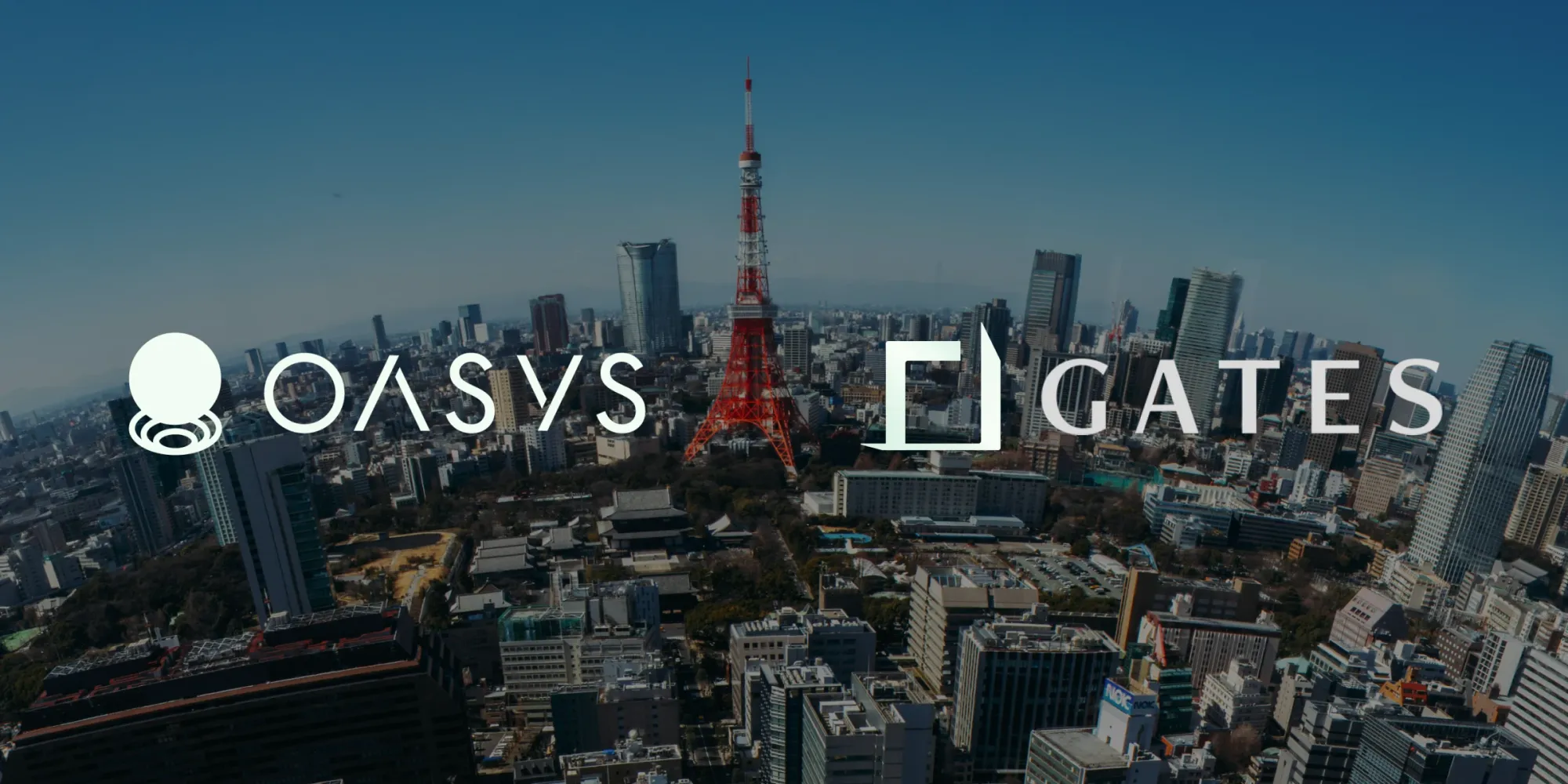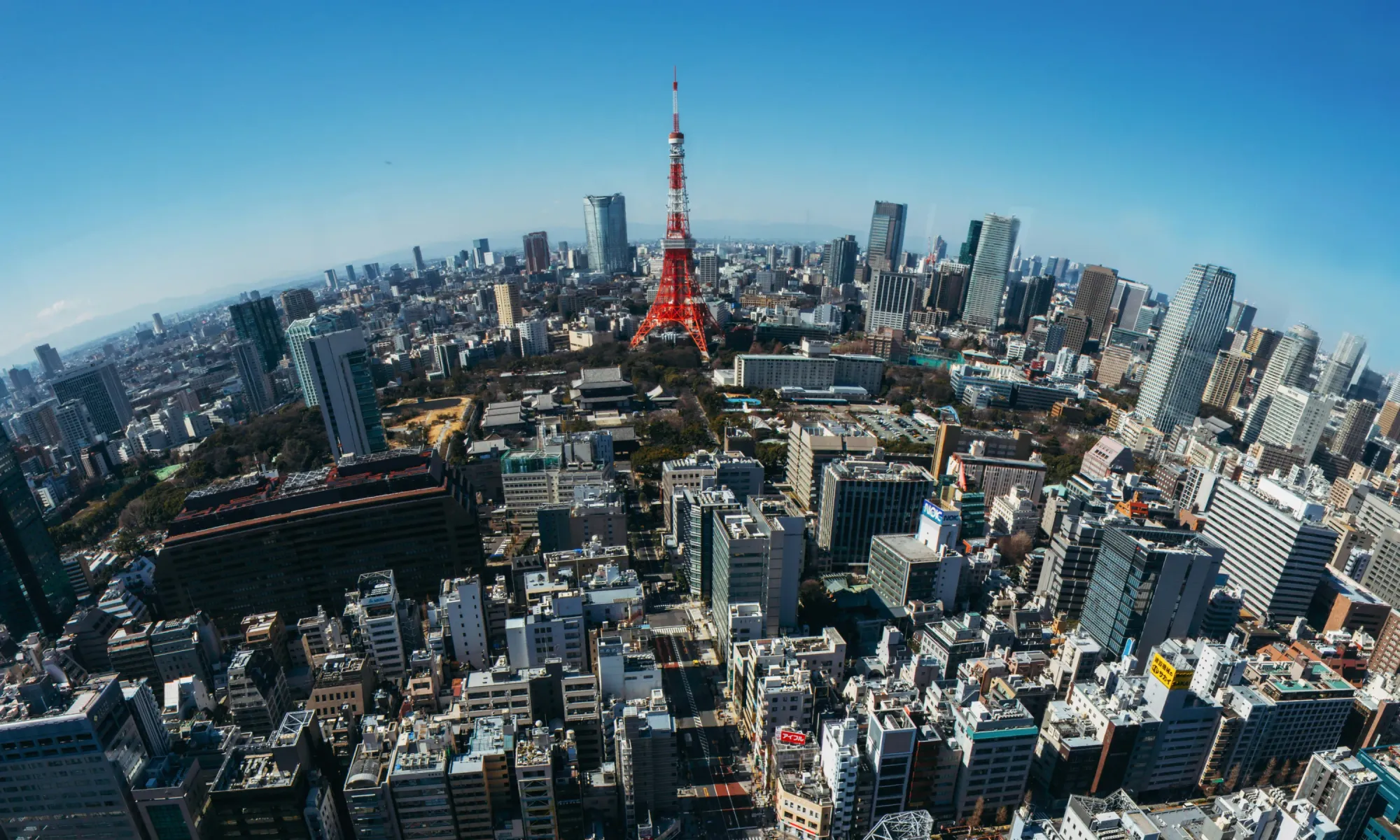Japan Goes All-In: GATES Tokenizes $75M Tokyo Real Estate on Oasys and Eyes $200B

In July 2025, Japan made a big move in the crypto world. GATES Inc., a leading Tokyo real estate firm, announced partnership with Oasys, a popular gaming blockchain, to tokenize $75 million of prime Tokyo property. This means each building share will be turned into digital “tokens” on a blockchain, letting people anywhere buy parts of it with a crypto wallet. GATES said the goal is to make it easy for foreign buyers to invest in Japan’s $20 trillion real estate market. The plan starts with $75M in high-value Tokyo assets and eventually aims to expand to about $200 billion – roughly 1% of all Japanese property. In short, GATES is going all-in to open Japan’s real estate to the world.
GATES’s Big Tokenization Plan

Why is GATES doing this? The company says Japan’s property market has been hard for outsiders. High legal fees, complex rules, and language barriers often stop foreign buyers. Using blockchain can cut through those hurdles. GATES believes that by making property shares into tokens, global investors can more easily buy and sell tokens for Japanese real estate, without needing local lawyers or agents. For example, one CoinDesk report notes that investors will be able to “buy and sell real estate-backed tokens on decentralized platforms” directly.
Each token will act like a digital share of a building. Instead of one person owning a whole office or apartment tower, many people can each own a small piece. This gives everyday investors a chance to enter the market. Gates’s CEO Yushi Sekino said the new tokens will “add firm value” to Japan’s trusted assets by combining profitability and usefulness. He believes this token system will build a next-generation investment platform that gives global buyers easy access to Japanese property. In other words, GATES sees tokens as a way to streamline deals and give more people a stake in Japan’s economy.
According to media reports, this is a first-of-its-kind effort in Japan. GATES is already a serious company – it made about $145 million in revenue in 2024 – and it has filed paperwork for a Nasdaq stock listing. By moving into tokenization, GATES hopes not only to grow its own business, but to set a model that other firms could follow. One analysis notes that this effort could “eliminate barriers” for foreign investors – removing the traditional cost, fee, and legal hurdles that kept many buyers out of Japan. If successful, GATES’s pilot project could change how both Japanese and global investors look at real estate deals.
The Oasys Platform

The blockchain behind this project is Oasys. Oasys is a Layer-1 network that was first built for crypto games in Japan, but it is now shifting into real-world assets. CoinDesk notes that Oasys is pivoting to tokenization of traditional assets like property. In practice, Oasys uses a fast, proof-of-stake system and is fully compatible with Ethereum. This means anyone with a standard Web3 wallet can use it. Oasys’s design provides “seamless integration” with popular crypto wallets and easy bridging from other blockchains. In simple terms, the network is secure and quick enough for big businesses, but still connects to the wider crypto world.
Oasys also has strong support. It is backed by major names in Japan’s tech and entertainment industry (like Bandai Namco and Nexon), which adds trust for big investors. Oasys’s leadership says they chose projects like GATES’s because Japanese assets, including gaming and anime IP, have high global value. GATES and Oasys both plan to expand this model abroad. After the Tokyo launch, they will offer the token system in the U.S., Europe, the Philippines, and elsewhere in Asia. Over time, the initiative may even include tokenized rights to Japanese gaming, anime, and other intellectual properties.
Breaking Down Barriers for Foreign Buyers

For years, Japan’s real estate market was mostly open only to locals. Foreigners faced a maze of paperwork, language issues, and high fees. By tokenizing property, GATES aims to break down those barriers. As one report explains, the blockchain approach can “eliminate longstanding barriers” for foreign investment. Under the new system, someone from overseas could use their crypto wallet to buy tokens from an Oasys-compatible exchange. They would own a piece of a Japanese building, with ownership recorded on the blockchain. There would be no need to hire local lawyers for every small transaction.
Legal setup is handled carefully. GATES plans to issue its real estate tokens through an overseas special-purpose company. This ensures it follows Japan’s rules while still allowing global trading. In fact, the firms point out that blockchain can overcome legal hurdles that normally block international property deals. By keeping clear records on the chain and using a regulated structure, GATES and Oasys believe they can make deals safe and simple. This approach could save investors time and money, because the blockchain itself takes care of tracking who owns what share of each building.
Japan’s Supportive Regulations

A big reason this deal is possible is Japan’s clear rules on digital assets. In recent years, Japanese regulators have worked to create a stable framework for blockchain and tokens. One example is the so-called “1 million rule.” Under this rule, tokens with a supply of one million or less (used for collectibles or rights, not as money) can operate outside Japan’s strict cryptocurrency laws. This kind of rule means innovators can build new products without going through burdensome crypto licensing.
Oasys points out that this regulatory setup “fosters experimentation” in Japan. In other words, the government is giving a kind of green light to real-world asset projects that follow the rules. While Japan only allows banks to issue stablecoins, it has not banned tokenized assets like real estate. In fact, authorities have praised the idea of using blockchain to open up financial markets. By creating legal clarity and safe guards, regulators have effectively created a “regulatory green light” for projects like GATES’s. This has helped make Japan a favorable place to try large-scale tokenization.
Global Outlook

The GATES/Oasys project comes at a time of global interest in real estate tokens. Elsewhere, tokenized property markets are already growing fast. For example, Dubai recently reported about $18 billion in tokenized real estate sales. A Deloitte report predicts the worldwide market for tokenized property could grow from $300 billion today to over $4 trillion by 2035. Institutional investors are also paying attention: some big funds and banks are starting to buy tokenized assets as part of their portfolio.
In this context, Japan’s move is both bold and timely. If GATES can successfully issue $75M of tokens and later reach $200B, it will be one of the largest real estate token projects in the world. The companies plan to use the Tokyo launch as a springboard into the US, Europe and beyond, and even to tokenize Japan’s famous anime and gaming IP in the future. News sources suggest that this could become a model for how digital tokens connect global investors to real estate. Thanks to Japan’s supportive rules and strong blockchain partners, GATES’s pilot has a head start.
In summary, Japan is betting big on blockchain real estate. By combining a gaming blockchain with a massive property market, GATES and Oasys are testing a new way for investors to buy homes and offices in Tokyo. The move is experimental, but many experts say regulators are essentially giving it a free run, or “green corridor,” to succeed. If it works, millions of people around the world could soon own slices of Japan’s richest buildings just by holding crypto tokens. This story is just beginning to unfold, but it could change how real estate investment works in Japan and beyond.
Stay informed.
Subscribe to blog.tokenizer.estate for expert insights, real-world case studies, and the latest updates in real estate tokenization 🏠

